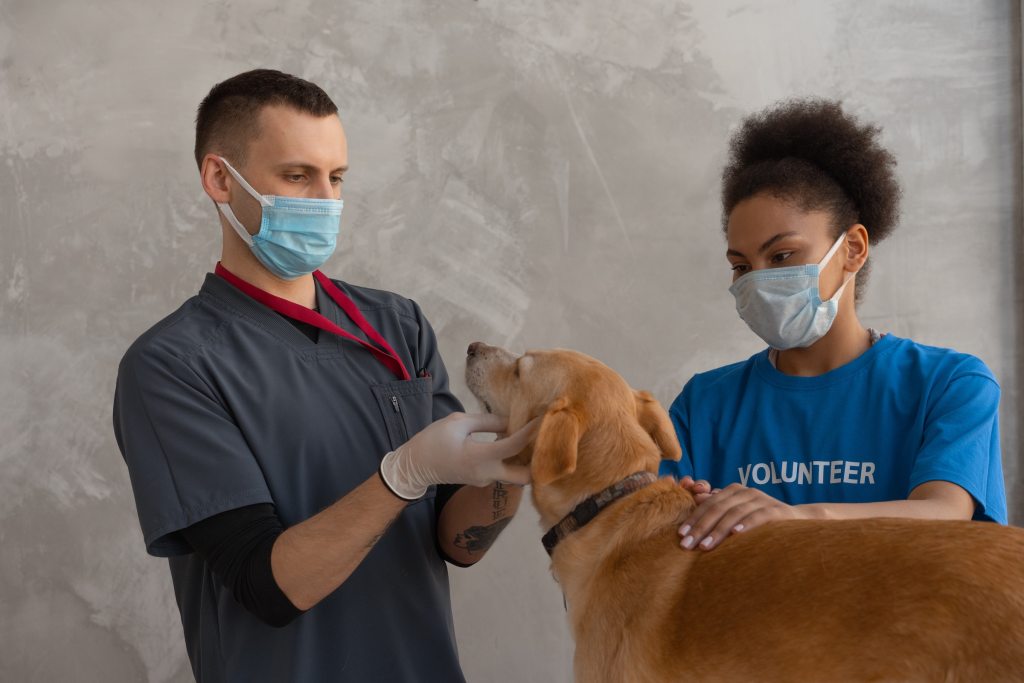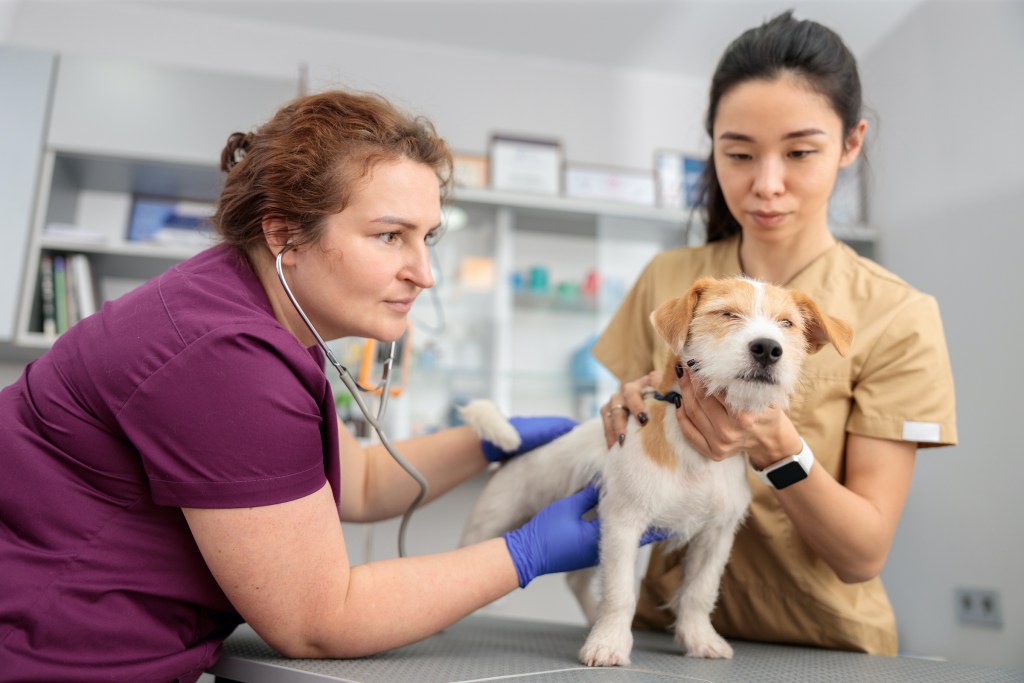Aside from sickness and injury, it’s not always obvious when your pup needs a visit to the veterinarian, especially when it comes to regular checkups. Pet parents hear about the importance of staying on top of these visits, but many are left wondering, “How often should I take my dog to the vet?”
Although there is no one-size-fits-all answer, most adult dogs won’t require many trips to the vet. In this article, we’ll go over how to know when your pup needs to see her doctor, if it’s a truly necessary practice, and how to identify some common medical symptoms. Before you know it, you’ll feel like a professional yourself, though nothing can truly compare with the education of a licensed veterinarian.
Is it bad to not take your dog to the vet?
As a pet parent, you want to make your dog’s well-being your top priority. This includes feeding her a healthy diet, ensuring daily exercise, and regularly visiting the veterinarian. During these visits, your vet will double-check your pup’s health through and through, including blood-sugar levels and other factors you may not be able to see on your own.
Regular veterinarian checkups will also keep your furry friend up to date on all her vaccinations, which are often required to visit kennels or doggy daycare. Vaccinations also protect your pet and other dogs from passing around a number of dangerous diseases, so these should not be overlooked.

How often should I take my dog to the vet?
According to the Brandywine Valley SPCA, healthy adult dogs need to visit the vet for a checkup only once a year. Of course, extra visits may be necessary should your pup get sick or injured, which is why dogs battling chronic illnesses often visit the vet more frequently.
Older dogs tend to need more care than their spry, young counterparts, so you may begin seeing the vet more often in this case, too. These extra trips may be for additional testing, creating treatment plans, or learning new care strategies for your best furry friend.
Vet visits for spaying and neutering, vaccinations, and other checkups may be more frequent for puppies, as well. It’s important to make sure your fur baby is healthy and growing, after all!
When should I take my dog back to the vet?
Once you bring your pup to the vet for the first time, the doctor’s office can help you schedule regular checkups and any other necessary appointments — no work from you required. They’ll let you know when to bring your dog back in, though unforeseen illness and injury can happen.
Even though you know your vet is always there to help, it can be hard to tell when it’s appropriate — or necessary — to make an appointment. It’s an important and tough judgment call, and veterinarians understand, so no one will give you a hard time if you bring your dog in and she ends up perfectly healthy. Pet people get it: Dogs are family!
Some concerning behaviors or changes that may prompt a vet visit include:
- An obvious injury.*
- Fever.
- Sudden change in behavior/aggression.*
- Lethargy.
- Extreme or unexplained change in eating or drinking habits.
- Vomiting.
- Diarrhea.
- Inability to urinate, defecate, or vomit.
- Breathing problems.*
- Seizures, collapse, or confusion.*
- Shaking.*
- Red or cloudy eyes.
- Skin changes or rash.
- Vomiting blood.*
* Denotes a possible veterinary emergency and should be treated immediately (via St. Francis Veterinary Hospital).
How can you tell if a dog is running a fever?
Although some concerning symptoms are more obvious to the naked eye, others you may have to feel for. A fever, for example, may not be clear until you feel around for the right signs.
You may have heard the old wives’ tale about feeling for a dog’s fever: If their nose is wet and cold, they’re healthy, but if their nose is hot and dry, they have a fever. While this may indeed be the case sometimes, it’s not quite this simple.
Here are some of the most common symptoms of fever in canines, according to the American Kennel Club:
- Lethargy or loss of appetite
- Red eyes
- Warm ears and warm, dry nose
- Shivering
- Coughing
- Vomiting
The most accurate way to tell whether your dog has a fever, though, is to take her temperature. This may be uncomfortable for your dog and awkward for you, but you can do it from home before deciding whether to visit the vet.
Final thoughts
Keeping a watchful eye on your dog’s health and making routine vet visits a part of your schedule sets up your furry friend for a long, happy life by your side. You can do a lot to keep your pup feeling her best at home, but nothing can replace the professional knowledge and experience of a veterinarian — so don’t wait to look for one if you haven’t already.
Editors' Recommendations
- How long do dachshunds live? The truth might surprise you
- Are ‘dog years’ really 7 human years? How to calculate your dog’s age
- Taking your dog’s collar off at night: Safe move or safety risk?
- How to tell if your older dog’s health decline means the end is near
- Looking for signs your dog has ticks? These telltale symptoms mean you have a flea or tick problem





